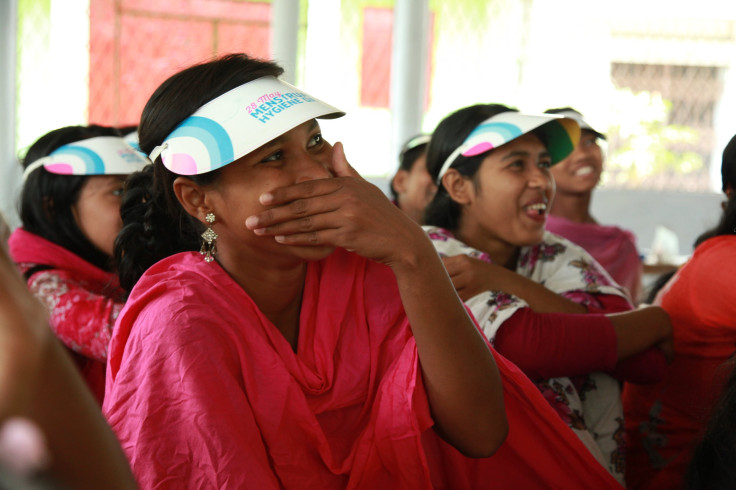Menstrual Hygiene Day Challenges Societal Norms, Hopes To Improve Women's Reproductive Health

For most women, something like “menstruation hygiene” might refer to TheDivaCup — a reusable, silicone cup women neither have to change as frequently as tampons, nor worry about overnight leaks. But this isn’t the case in other other parts of the world.
That’s why WASH United denoted May 28 Menstruation Hygiene Day (MH Day). The truth is, a poor percent of schools in countries, like India and Africa, have functioning toilets and/or places for young girls to change their sanitary materials. In South Asia, less than three percent of girls know menstruation blood comes from the uterus. In fact, WASH cited one in three girls living in South Asia only learn what menstruation is after they get their first period.
“Despite the fact that menstruation is a healthy biological process, in many places all over the world it is approached with hesitance and misinformation because of deeply–rooted cultural taboos,” WASH said in a press release. “The silence around menstruation limits women’s and adolescent girls’ access to relevant and important information about their bodies, directly affecting their health, education, and human rights.”
Using the hashtag #MenstruationMatters, WASH United hopes this year’s campaign challenges societal norms pitting periods as “shameful” or dirty.” Dr. Dani Barrington, WASH specialist and strategic advisor for MH Day in Australia, said achieving this is vitally important to women’s dignity. Not only do available facilities keep young girls in school — UNESCO found one in 10 African girls miss school during menstruation — but it also empowers their economy, health, and human rights.
Additionally, factual information and education informs young girls and women where to access sanitary materials, as well as how to relieve period-related pain. What's more is they debunk myths, including but not limited to the idea period blood attracts sharks; it doesn't.
WASH found many women use old rags, dried leaves, sand, even newspaper when they’re on their period — and if hot water bottles aren’t on hand, eliminating certain ingredients from their diet, plus yoga (which science shows increases pain tolerance), can offer relief.
WASH continues to partner with other coalitions to spread their message, engage governments, and coordinate stakeholders. One such example is the Nepal Fertility Care Center.
“The continuous support shown by the government, civil society organizations, development partners, donor agencies and media in Nepal is really encouraging,” said Pema Lhaki, the center’s deputy executive director and MH Day National Coordinator for Nepal. “But most of all, I am encouraged every time I say the word ‘menstruation’ to a woman or girl in Nepal. The smile that appears on their face is a smile that starts the conversation about something they have never really talked about before."
Published by Medicaldaily.com



























